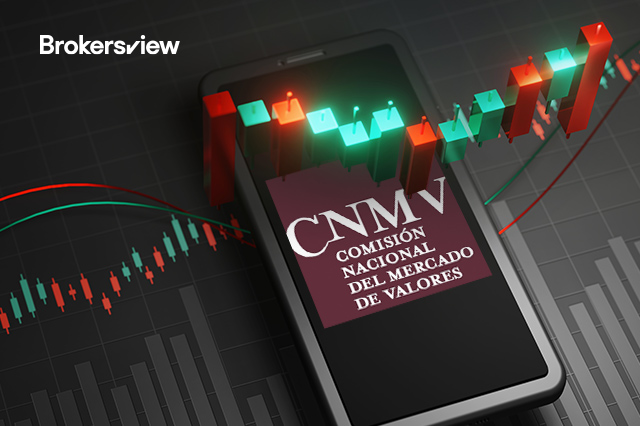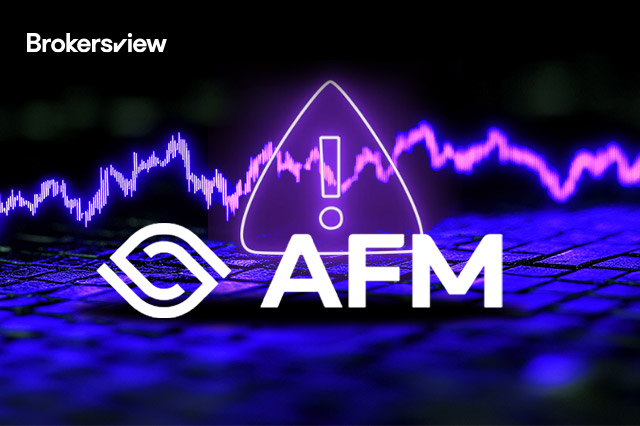- Brokers HOT
- Scam
- BV Assessment NEW
- Rankings
- Regulators
- News
- Claims
- Expo
- Event
- Awards
 Download
Download
Best Forex Brokers for Algo Trading 2023
The algorithmic trading market size is expected to grow from USD 15.77 billion in 2023 to USD 41.9 billion by 2030, at a CAGR of 12.9%. Algorithmic trading, also known as algo trading or automated trading, has gained popularity in recent years due to its ability to make high-speed and precise trading decisions, thereby reducing the impact of market volatility and human emotions. It is used in various financial markets, including foreign exchange, and there are many forex brokers providing algorithmic trading services. Here in this article are some of the best forex brokers for algo trading.

Top 10 Best Forex Brokers for Algo Trading
Pepperstone: Pepperstone offers a dual offering of MetaTrader and cTrader, which is a great fit for algorithmic traders and copy traders. Its notable feature, Expert Advisors (EA), facilitates automated trading, and it provides multiple platform add-ons that enhance the MetaTrader experience, such as Smart Trader Tools plugins, Capitalise.ai, Autochartist, and API trading. Pepperstone also offers Capitalise AI, which supports code-free algorithmic trading, providing a cutting-edge advantage. This service allows traders to create and backtest trading strategies without any coding knowledge.
RoboForex: RoboForex offers a fully automated service that minimizes the work of traders to almost 0%. Its quality services are for both beginners and seasoned traders, and the broker has not received any significant claims against it over years, making it quite popular among traders. The company has also developed a variety of trading robots that leverage artificial intelligence and machine learning algorithms to improve trading performance.
FOREX.com: FOREX.com allows traders to create their own algorithms using the MT4 platform. Traders can also utilize off-the-shelf examples created by other users and Expert Advisors (EAs) to automate their trading strategies and execute trades automatically. Additionally, the broker offers automated analysis tools such as Autochartist and Recognia, which help traders identify chart patterns and highlight potential trade opportunities, assisting algorithmic traders in making informed trading decisions.
IC Markets: IC Markets is considered the best forex broker for algo-scalpers. The broker provides a low-latency trading environment that is perfect for automated and high-frequency trading, also known as scalping. Its advanced backtesting functionality can be used in conjunction with the cTrader platform. Furthermore, IC Markets' trading servers are located in the NY4 data center in New York and the LD5 data center in London. These servers provide low latency connections, ensuring the fastest execution speeds for clients.
FP Markets: FP Markets is an extremely versatile algo trading broker. It offers internal solutions such as a copy trading platform, and external solutions such as MyfxBook Autotrade, allows Autochartist to be linked to MT4/MT5 accounts, for further testing of automated strategies, and provides VPS solutions for auto-traders, EAs, and scalpers.
AvaTrade: AvaTrade offers a wide range of automated trading platforms and autotrading software, which preserves discipline and minimizes the impact of emotions in trading, saves time, and can be backtested using historical data. It also offers a VPS connected to the Equinix NY4 servers network, which minimizes latencies and allows EAs to run 24/7.
Interactive Brokers: Interactive Brokers' Scale Trader feature allows traders to automate their trading strategies for various products offered by the broker, including forex. It also offers various technology features that enhance the trading experience, including Accumulate/Distribute Algo, Fundamentals Explorer, Bracket Orders, Trade in Fractions, Strategy Builder, Impact Dashboard, Write Options Tool, and Rollover Options, and provides a Python API that allows traders to build and implement automated trading strategies.
Admirals: Admirals is best known for its MT4 algo-trading feature, which allows traders to automate their trading strategies using the popular MetaTrader 4 platform. Admirals also offers the MetaTrader 5 platform and a proprietary plug-in called MetaTrader Supreme Edition. It offers competitive spreads and low commissions, making it an attractive option for algo traders.
Tickmill: Tickmill allows traders to use various trading strategies, including scalping, hedging, arbitrage, EAs, and algorithms. This flexibility is crucial for algo traders who need to use different strategies to maximize their profits. The broker has no restrictions on trading and no requotes, which means traders can execute trades without any limitations. This is an essential feature for algo traders who need to execute trades quickly and efficiently.
Axi: Axi offers MT4 algo-trading for traders to automate their trading strategies. The broker also provides advanced trading tools, including Autochartist, which helps traders identify potential trading opportunities, and PsyQuation, which provides real-time trading signals and analytics.
Comparison of the Best Forex Brokers for Algo Trading
| Brokers | Regulation | Min Deposit | Spread from | Currency Pairs | Type of Execution |
| Pepperstone | CySEC, FCA, ASIC, DFSA, Bahamas SCB, Kenya CMA | $0 | 0.0 pips | 62+ | STP/NDD |
| RoboForex | Belize FSC | $10 | 0.0 pips | 40+ | STP/ECN |
| FOREX.com | FCA, ASIC, CySEC, CFTC, CIRO, FSA, MAS, CIMA | $100 | 0.0 pips | 80+ | Market Maker/ ECN |
| IC Markets | CySEC, FCA, ASIC, Seychelles FSA, Bahamas SCB | $0 | 0.0 pips | 61+ | ECN |
| FP Markets | CySEC, ASIC | $100 | 0.0 pips | 70+ | ECN |
| AvaTrade | ASIC, FSCA, CBI, KNF, CIRO, ADGM, FSC-BVI | $100 | 0.9 pips | 55+ | Market Maker |
| Interactive Brokers | FCA, ASIC, CFTC, SEC, IIROC, MAS, CSSF | $1,000 | 0.6 pips | 100+ | Market Maker/ ECN |
| Admirals | CySEC, FCA, ASIC, FSCA, CONSOB, Estonia FSA, Bulgaria FSC | $25 | 0.0 pips | 80+ | Market Maker |
| Tickmill | FCA, CySEC, FSCA, Seychelles FSA | $100 | 0.0 pips | 62+ | Market Maker/ ECN |
| Axi | FCA, ASIC, DFSA, NZ FMA, SVG FSA | $0 | 0.0 pips | 70+ | STP/ECN |
Is Algo Trading Safe?
Algo trading is the use of computer algorithms to trade large blocks of foreign exchange or other financial assets while minimizing the market impact of such trades, which means it is free of emotions and is filled with logic. This makes it a much safer approach as compared to manual trading.
Trades are made at the best possible price with algo trading since they are quickly timed to avoid excessive price changes. The chances of a mistake are reduced, and accuracy improved when a machine conducts a deal instead of a human.
While algo trading has improved market liquidity and asset pricing consistency, it also has certain risks that cannot be ignored. The biggest risk of algo trading is its potential to amplify systemic risk, which can intensify market volatility and ripple through the financial system.
There is also a risk of failure of the system or a weak internet connection, which can lead to losses. One single fault in the algorithm can make a trader lose a hefty amount of money on a single transaction.
In conclusion, while algo trading can be a safer approach as compared to manual trading, it is important to be aware of the potential risks involved and take measures to mitigate them.
How Does Algo Trading Work?
Breaking it down into steps, in algo trading traders need to develop algorithms based on specific criteria, such as timing, price, quantity, or mathematical models first. Once the algorithm is developed, it is programmed into a computer system that can automatically execute trades based on the predefined instructions.

Then, the algorithm continuously monitors and analyzes market data, such as price movements, volume, and other relevant indicators, to identify forex trading opportunities. Based on the analysis of market data, the predetermined criteria, and trading strategy, the algorithm makes decisions to buy or sell currency pairs.
Algo trading often utilizes high-frequency trading technology, which enables the system to execute trades at extremely fast speeds, sometimes making tens of thousands of trades per second. Risk management techniques are also incorporated into the algorithm to minimize potential losses and manage exposure to market volatility.
How to Get Access to Algo Trading Software?
To get access to algorithmic trading software, you have two options - build it yourself or buy ready-made software.
- Building algorithmic trading software
If you have access to a computer with the necessary hardware and software requirements, can connect to a reliable and fast internet connection to access real-time market data and execute trades, have a solid understanding of the financial markets, including different asset classes, trading strategies, and risk management, and have coding skills in programming languages commonly used in algorithmic trading, such as Python or C++, you can choose to build algorithmic trading software by your own.
You can design and develop your trading algorithms based on your trading strategy and objectives. And don’t forget to test your algorithms using historical market data to evaluate their performance and make necessary adjustments before choosing a trading platform or API that allows you to connect your algorithms to the market and execute trades.
- Buying algorithmic trading software
In the case of buying the software, it’s better to firstly explore different algorithmic trading software options available in the market, considering factors such as cost, features, user reviews, and compatibility with your trading needs.
Ensure that the software can easily integrate with other commonly used trading tools, such as price analysis terminals or broker terminals, and verify that the software has access to timely and accurate market data, as this is crucial for making informed trading decisions. Risk management capabilities, such as portion sizing and trailing stops, are also important to help manage and mitigate potential risks.
You can take advantage of free trial periods offered by some software providers to test the software and evaluate its suitability for your trading strategy. Reliable support can be crucial in case of any issues or questions that arise during your trading activities. So make sure to consider the level of technical support and assistance provided by the software vendor.
How to Use Algo Trading?
Before you start algo trading, it is important to have a good understanding of the market you want to trade in. This includes understanding the trends, volatility, and other factors that can affect the market.

Since algo trading works on pre-decided conditions, it is important to test your strategy on past data before implementing it in the real world. This helps to ensure that the code is accurate and effective.
There are many platforms available for algo trading, and it is important to choose one that meets your needs. Once you have tested your strategy and chosen a platform, you can start using algo trading to execute trades automatically based on the pre-defined conditions.
Is Algo Trading Good for Beginners?
Algorithmic trading can be a more systematic approach to active trading than one based on intuition or instinct. It combines computer programming and financial markets to execute trades at precise moments. Algo-trading makes markets more liquid and trading more systematic by eliminating the impact of human emotions on trading activities.
For beginners, algorithmic trading can be perceived as a complex area to get to grips with. However, the overall concepts are straightforward to grasp, while the details can be learned in an iterative, ongoing manner. The beauty of algorithmic trading is that there is no need to test out one's knowledge on real capital, as many brokerages provide highly realistic market simulators.
There are several easy trading algorithms for beginners, including mean reversion, trend following, pairs trading/long-short equity, and chart pattern analysis. Additionally, there are several algorithmic trading software options for beginners, such as Pionex and Algorithmic Strategy Builders.
How to Avoid Algo Trading Scams?
To avoid algo trading scams, you’d better do intensive research about the company before investing in any trading system or platform. Look for reviews, ratings, and feedback from other traders who have used the system, and make sure the company is regulated by a reputable financial authority.

Besides, be wary of companies that promise guaranteed returns or make unbalanced claims of huge profits. Forex brokers should not promise returns at all, small or large. Simply put, any broker that is promising to make you money is a scam.
Before paying or laying down any money for a trading account, scrutinize anything you'd have to pay for and always ask questions. Avoid systems that promise high profits for a low price.
Signal-seller scams are sometimes initiated by investment account companies, pooled asset managers, and retail traders. They charge novice traders monthly, weekly, or even daily fees to offer tips. Be skeptical of such platforms and choose a licensed and trusted broker who is also regulated by a renowned financial authority.
Last but not the least, be cautious of trading bots that promise automatic trades that earn vast wealth while you sleep. A significant number of these systems have not undergone formal review or been evaluated by an outside party. No trader should pay more than a few hundred dollars for a trading system.
What Are the Pros and Cons of Algo Trading?
Algo trading involves the use of computer programs and complex algorithms to execute trading decisions. While it offers several advantages, it also comes with its own set of challenges.
- Pros of Algo Trading
Speed and efficiency: One of the major advantages of algo trading is its ability to execute trades at incredibly high speeds. Algorithms can analyze market data and execute trades in milliseconds, allowing for better price discovery and reduced latency. This speed and efficiency can be particularly beneficial for high-frequency trading strategies.
Reduced emotional bias: Algo trading rules out the emotional aspect of trading. It follows pre-programmed rules and algorithms, removing the impact of fear, greed, or other human emotions that can often cloud judgment. This can lead to more disciplined and consistent trading decisions.
Backtesting capabilities: Algo trading systems allow traders to backtest their strategies using historical data. This enables traders to evaluate the performance of their strategies and make necessary adjustments before deploying them in live trading.
Diversification: Algo trading allows for the simultaneous execution of multiple trading strategies across different markets, instruments, and timeframes. This diversification can help spread risk and reduce exposure to any single market or asset.
- Cons of Algo Trading
Technical complexity: Algo trading requires a solid understanding of programming languages, market data analysis, and trading platforms. Implementing, maintaining, and optimizing algorithmic trading systems can be a complex task that may require specialized skills. Traders must invest time and effort in learning and staying updated with the latest technologies and techniques.
Reliance on technology: Algo trading heavily relies on technology infrastructure, including servers, data feeds, and connectivity. Any technical glitches or failures can disrupt trading operations and potentially lead to financial losses. Traders must ensure robust backup systems and redundancies to mitigate such risks.
Market volatility: While algo trading can exploit market volatility to generate profitable trades, extreme market conditions can also pose challenges. Sudden market movements, unexpected news events, or technical glitches can result in significant losses. Traders must carefully monitor their algorithms and implement risk management strategies to protect against adverse market conditions.
Regulatory scrutiny: Algo trading is subject to regulatory oversight and scrutiny. Traders must comply with various rules and regulations, including risk management guidelines, order routing protocols, and market surveillance requirements. Staying compliant with these regulations can add complexity and cost to algo trading operations.
In conclusion, algo trading offers numerous benefits such as speed, efficiency, reduced emotional bias, and diversification. However, it also presents challenges related to technical complexity, reliance on technology, market volatility, and regulatory compliance. Traders must carefully weigh the pros and cons before implementing algo trading strategies and ensure they have the necessary knowledge and resources to navigate this dynamic field.










